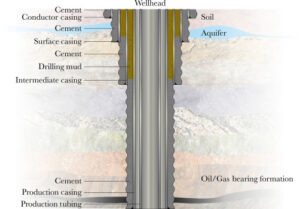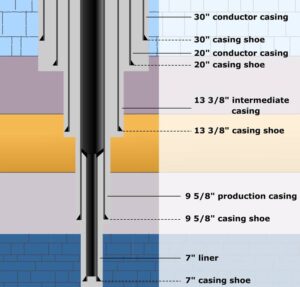
Menu
OrientMCT
Casing Design

The Casing Design course is designed to provide participants with a comprehensive understanding of the principles, methods, and considerations involved in designing casing strings for oil and gas wells. Casing plays a critical role in ensuring the integrity and stability of the wellbore, and this course aims to equip participants with the knowledge and skills to design casing programs that meet industry standards and address various wellbore challenges.
Throughout the course, participants will learn about the key factors and considerations that influence casing design. They will explore the geological and formation characteristics that impact casing selection, including pore pressure, fracture gradients, and wellbore stability. Participants will understand how to analyze well data, such as drilling records, well logs, and pressure data, to assess the well conditions and determine appropriate casing sizes and specifications.
The course will cover different types of casing strings, their functions, and their installation processes. Participants will learn about casing components, including casing joints, couplings, and connectors, and understand their roles in the overall casing design. They will also gain insights into various casing materials, their properties, and their suitability for different well environments.
Participants will delve into the hydraulic considerations of casing design, including flow rates, pressure differentials, and annular fluid displacement. They will learn how to calculate casing loadings, axial and bending stresses, and design casing strings that can withstand the anticipated mechanical forces during drilling, completion, and production phases.
Safety is a crucial aspect of casing design, and the course will emphasize the importance of adhering to industry standards and best practices to ensure the integrity of the well. Participants will learn about casing integrity testing methods, such as pressure testing and cement evaluation, to verify the effectiveness of the casing design and identify potential issues.

By the end of the Casing Design course, participants will have a solid understanding of the principles and practices involved in designing casing strings for oil and gas wells. They will be equipped with the skills to analyze well data, select appropriate casing sizes and materials, and calculate the mechanical and hydraulic parameters necessary for a robust casing design. This course is essential for drilling engineers, well planners, and professionals involved in well construction who seek to enhance their expertise in casing design.
Get In Touch!
Contact us for a quote or in case of any urgent queries please send us an email on: info@orientmct.com
we will get back to you right away!